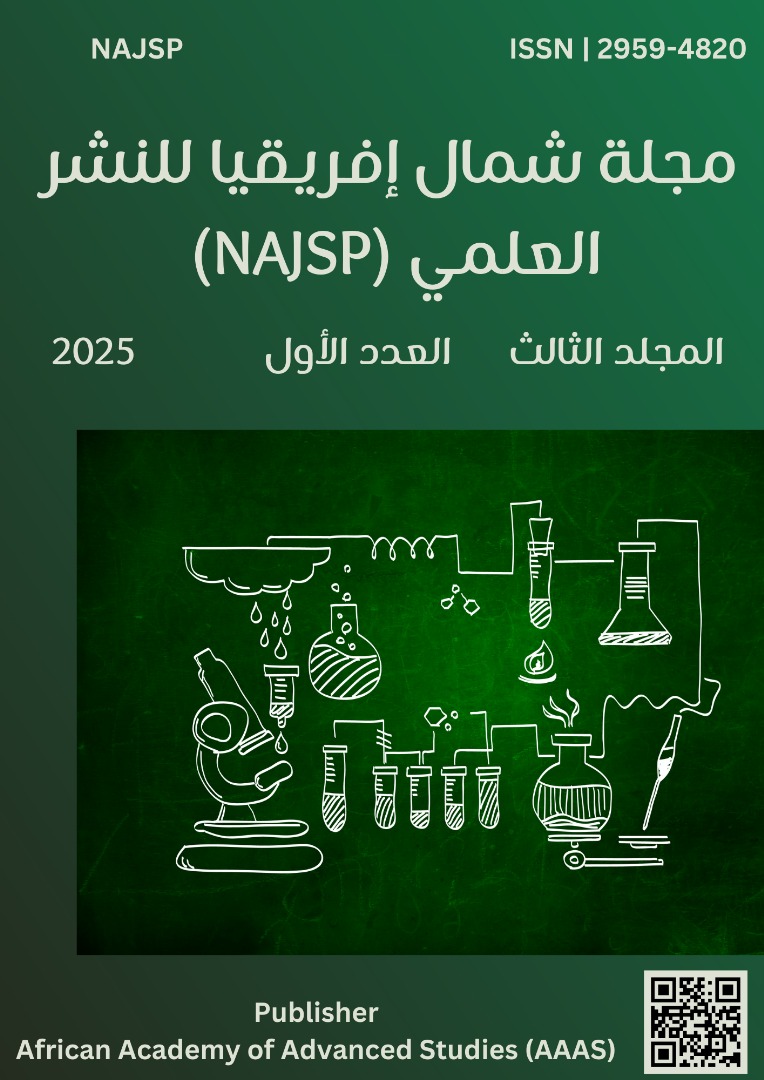Traditional vs. Modern Olive Oil Extraction in Libya: A Comparative Study of Fatty Acids and Heavy Metal Contamination
DOI:
https://doi.org/10.65414/najsp.v3i1.497الكلمات المفتاحية:
Olive oil، Libya، Extraction method، Fatty acids، Heavy metals، OMWWالملخص
Olive oil is a vital agricultural product in west of Libya and a core component of the Mediterranean diet. Its quality largely depends on the extraction method. This study aims to compare traditional (manual pressing) and modern (centrifugation) extraction methods by analyzing the physicochemical properties, fatty acid profiles, and heavy metal content in both olive oil and olive mill wastewater (OMWW). Samples were collected from traditional and modern oil mills in Libya. Fatty acid composition was determined using GC-FID, and heavy metals (Pb, Cd, As, Hg) were analyzed using ICP-OES. Results showed that olive oil from modern extraction had a higher oleic acid content (59.01%) than traditional oil (57.03%), indicating better oxidative stability. The saponification value was also higher in modern oil, reflecting improved purity. All oil and OMWW samples had cadmium levels below 0.1 ppm, while lead, mercury, and arsenic were undetected, suggesting good safety standards. OMWW samples from traditional extraction showed higher turbidity and coloration, potentially indicating greater organic and metal retention. These findings support the environmental and nutritional advantages of modern extraction techniques. The study recommends encouraging modern methods in Libyan olive oil production, improving waste treatment in traditional mills, and regularly monitoring product safety.








